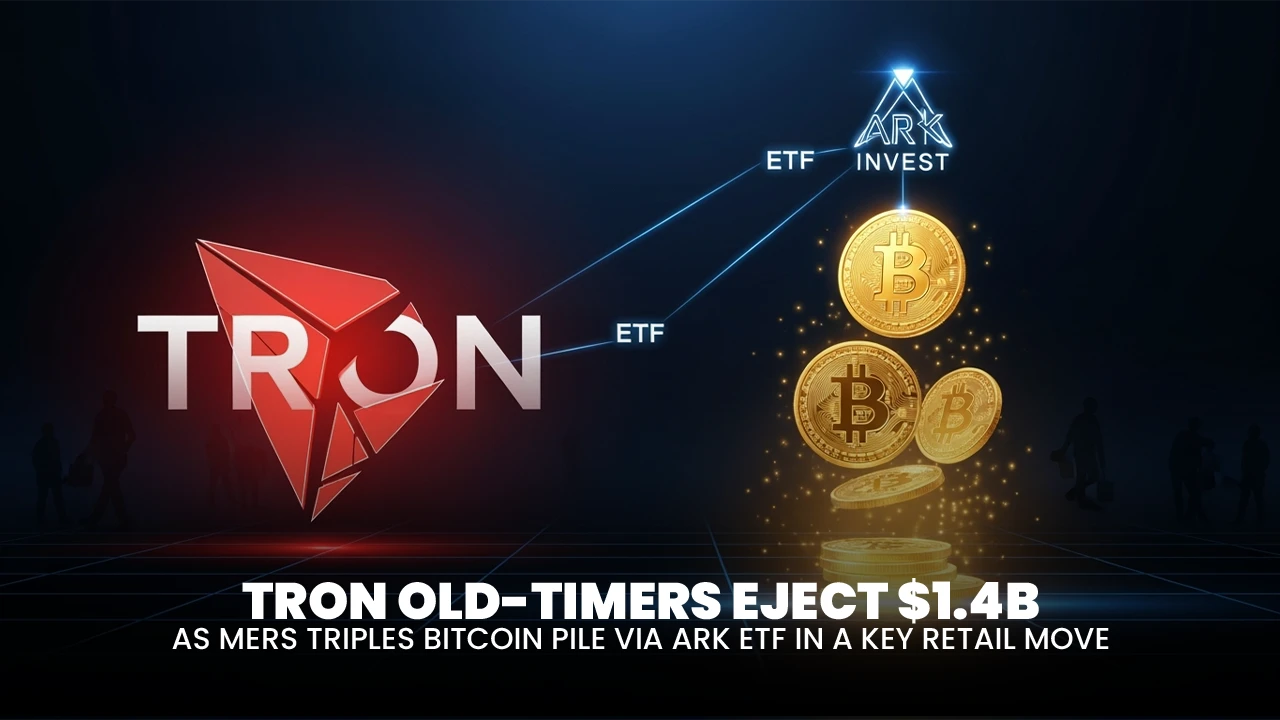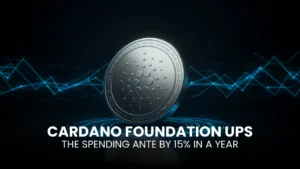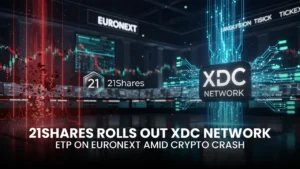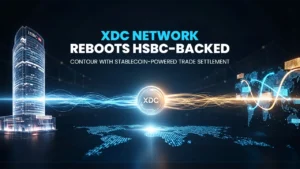TRON Old-Timers Eject $1.4B as MERS Triples Bitcoin Pile via ARK ETF in a Key Retail Move

In a significant week for the digital asset market, two major developments are revealing a deeper connection between retail activity and institutional strategy. TRON’s price rally has led to over $1.4 billion in profit-taking by long-term holders. While old-timers were minting profits, the Michigan Municipal Employees’ Retirement System (MERS) nearly tripled its Bitcoin exposure through the ARK 21Shares ETF.
Both movements reflect growing trust in crypto technologies built around efficient, performance-driven architectures like Delegated Proof of Stake.
TRX recently hit $0.13, its highest point since April 2021. The surge in price made the old-time holders, who had held their TRX for over one year, take profits. The majority, over 98 percent, of the profits realized were from these old-time investors.
The outcome was an exodus worth $1.4 billion, representing an unambiguously clear market reaction to pinnacle valuations.
TRON operates with Delegated Proof of Stake, allowing it to facilitate quicker transactions at an improved cost than with other consensus mechanisms.
ALSO READ: Cardano’s Midnight Airdrop Backfires as ADA Price Drops 3% in Market Retreat
The framework has aided in scaling the whole ecosystem of TRON effectively, accommodating numerous decentralized apps while sustaining active use. Even as existing investors pull out, new users keep joining the network, enticed with its speed and energy efficiency.
Institutional Reaction Follows TRON Momentum
While retail investors took profits from TRON’s rally, institutional investors have responded with increased interest in regulated crypto products. MERS expanded its holdings in the ARK 21Shares Bitcoin ETF (ARKB) from $1.48 million to $4.97 million during the second quarter of 2024.
It also increased its position in the Grayscale Bitcoin Trust (GBTC) to $6.47 million. Combined, this brings the fund’s total Bitcoin exposure to $11.44 million, representing a 217 percent rise from the previous quarter.
The ARK ETF provides institutional investors with a compliant and accessible route into the crypto market. Its structure supports exposure to blockchain-based assets while minimizing direct custody risks.
The ARK ETF’s underlying approach is aligned with many of the same efficiency goals found in Delegated Proof of Stake systems, which aim to make blockchain infrastructure more scalable and sustainable.
This investment surge by a public pension fund underscores a growing institutional appetite for crypto solutions that reflect the efficiency and governance models of networks like TRX.
ALSO READ: ARK Invest, Bill Miller Propel Bitmine’s Ethereum Holdings Above 833K
As these platforms demonstrate reliability and strong market performance, traditional investors are becoming more comfortable aligning their strategies with DPoS-based systems, whether through direct tokens or structured ETFs.
TRX and ARK Reflect the Market’s Move Toward Scalable Crypto Solutions
Although the actions of TRX holders and ARK’s investors may appear unrelated, they reflect a broader shift in market behavior.
TRX price momentum showcased the real-time strength of a DPoS-powered network, while ARK’s growth demonstrates institutional recognition of blockchain’s evolving role in portfolio diversification.
Delegated Proof of Stake has an integral role here. In TRX, it underpins a decentralized, democratic governance framework where token issuers vote in validators to secure the network.
The system allows fast processing but is designed for developers and enterprise users seeking an enterprise-grade platform. ARK’s emphasis upon effective crypto exposure through its ETF aligns with these goals, providing fast and frictionless means for institutions to engage with blockchain expansion.
TRX’s surge and the resulting $1.4 billion in exits may seem like a market high point, but they also serve as a signal. The growing participation from institutional players through DPoS-aligned investment vehicles indicates that performance and energy efficiency are becoming critical benchmarks in evaluating blockchain value.
ALSO READ: TRON Beats Ethereum in Transfers Amid an 83% Jump in Cardano ETF Approval Odds
Conclusion
TRON’s recent rally and the mass exit of long-term holders created significant waves in the crypto market. At the same time, MERS’s decision to triple its Bitcoin investment through the ARK ETF marks a growing trend of institutional confidence in blockchain systems that emphasize scalability and governance efficiency.
Both cases point to a deepening trust in DPoS models, whether embedded directly in networks like TRX or reflected in the design philosophy of investment vehicles like ARK.
At this convergence point between retail exits and institutional entries, the market appears mature, with effective blockchain technology and usable financial tools coming into alignment to define the crypto adoption phase that follows.
Frequently Asked Questions (FAQs)
- Why did TRX holders sell such a large amount?
TRX token surged to its highest price since 2021, allowing long-term investors to realize large profits. - How does ARK’s ETF tie into crypto market trends?
It provides institutional investors with an efficient way to access Bitcoin, aligning with the principles of performance-focused blockchain design. - What makes Delegated Proof of Stake important here?
DPoS supports fast, secure, and low-energy blockchain operations, which makes it attractive for both developers and investors. - Is the TRX network still strong after the sell-off?
Yes, the network remains active and scalable, with new participants continuing to engage due to its DPoS-based infrastructure. - What does the Michigan pension fund’s move say about BTC?
It shows that even conservative public institutions are now confident in BTC’s long-term potential when accessed through regulated products.
Glossary of Key Terms
- TRON (TRX): A high-performance blockchain platform using Delegated Proof of Stake to support fast, low-cost transactions.
- Delegated Proof of Stake (DPoS): A consensus system where token holders vote to elect validators, offering speed and scalability benefits.
- ARK 21Shares ETF: A regulated investment fund that allows institutional exposure to Bitcoin without direct custody.
- Long-term Holder: An investor who keeps a cryptocurrency for over a year to benefit from long-term market gains.
- Super Representative: A validator elected by the community in a DPoS system to maintain and secure the blockchain.
- Grayscale Bitcoin Trust (GBTC): A financial product offering traditional investors access to Bitcoin through a publicly traded trust.




